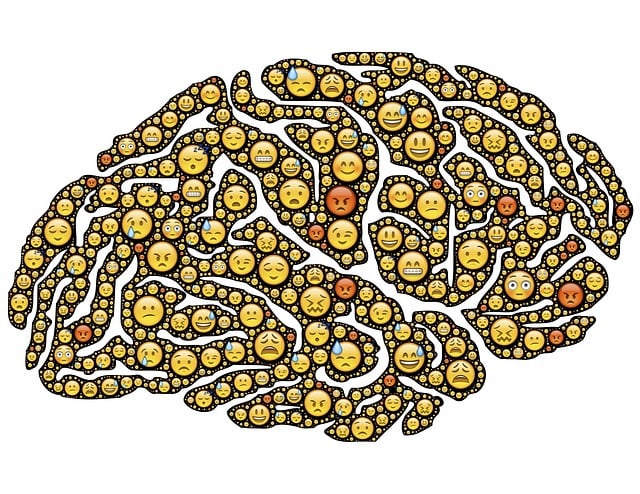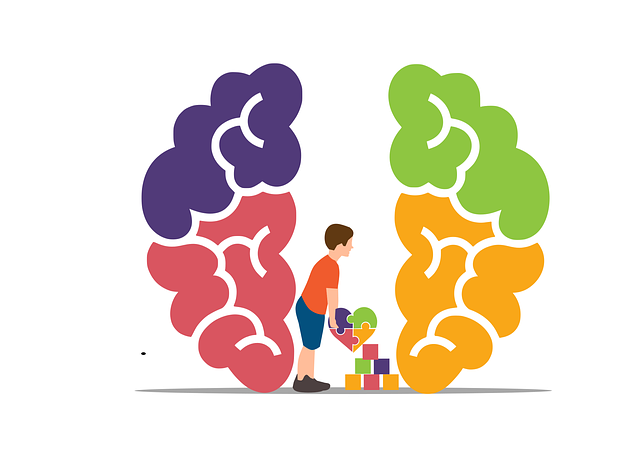Young adults transitioning from structured environments like high school or college to independence face unique risks, including adjusting to new routines, financial pressures, academic expectations, and identity formation, which can exacerbate mental health issues. Mental health professionals play a crucial role by offering tailored coping strategies through therapy, crisis intervention guidance, and mental wellness journaling exercises. Incorporating risk assessment tools is essential for comprehensive risk management planning, enabling therapists to identify vulnerabilities and tailor interventions proactively using evidence-based methods like self-awareness exercises, stress management workshops, and self-care practices. Continuous monitoring through dynamic assessment and regular check-ins is vital for adapting treatments and fostering positive thinking and resilience during these significant transitions.
Mental health professionals face unique challenges when managing risks associated with young adults navigating major life transitions. This article guides practitioners through essential steps in risk management planning, focusing on issues specific to this demographic. We explore the integration of risk assessment tools tailored to therapy, emphasizing the importance of a comprehensive plan. By understanding individual and situational factors, professionals can provide effective support. Continuous monitoring and adaptability are key to successful long-term care for young adults undergoing significant life changes in therapy.
- Understanding Risks Specific to Young Adults and Major Life Transitions
- Integrating Risk Assessment Tools in Therapy Practice
- Developing a Comprehensive Risk Management Plan
- Continuous Monitoring and Adaptability in Mental Health Care
Understanding Risks Specific to Young Adults and Major Life Transitions

Young adults, navigating a pivotal phase of life, often face unique risks and challenges that can significantly impact their mental health. This age group is typically transitioning from structured environments like high school or college to more independent lives, which can be both exciting and daunting. Common stressors include adjusting to new routines, financial pressures, academic expectations, and identity formation. These major life transitions can exacerbate existing mental health issues or serve as triggers for new ones, such as anxiety, depression, and substance abuse.
Mental health professionals must be attuned to the specific risks associated with these transitional periods. Therapy for young adults often involves helping them develop coping strategies tailored to their circumstances. Crisis intervention guidance is crucial during times of sudden change or severe stress. Additionally, encouraging mental wellness journaling exercises can provide young adults with a means to process their emotions and track their progress, fostering resilience and self-awareness.
Integrating Risk Assessment Tools in Therapy Practice

Incorporating risk assessment tools is an integral part of comprehensive risk management planning for mental health professionals, especially when addressing therapy for young adults undergoing major life transitions. These tools serve as valuable indicators of potential risks and vulnerabilities, enabling therapists to proactively tailor interventions. By integrating evidence-based risk assessment methods into their practice, professionals can effectively identify clients at higher risk of adverse outcomes, be it self-harm, suicide, or other mental health crises.
Self-awareness exercises, stress management workshops, and self-care practices are some strategies that can be incorporated alongside these tools to strengthen risk mitigation efforts. These approaches not only promote client resilience but also foster a therapeutic environment conducive to open communication about risks and coping mechanisms. Through regular assessment and a holistic approach that includes both risk identification and proactive self-care encouragement, mental health professionals can better navigate the complexities of young adults’ lives during significant life transitions.
Developing a Comprehensive Risk Management Plan

Developing a comprehensive risk management plan is an integral part of ensuring the safety and well-being of both mental health professionals and their clients, especially when working with young adults navigating major life transitions. This involves a multi-faceted approach that combines Self-Awareness Exercises, Crisis Intervention Guidance, and Mental Health Education Programs Design.
By integrating these strategies, therapists can create a robust framework to anticipate, mitigate, and respond effectively to potential risks. Regular self-reflection through exercises designed to enhance self-awareness allows professionals to recognize their own emotional triggers and limitations, thereby improving their ability to support clients. Crisis intervention guidance equips practitioners with the tools to de-escalate acute situations and ensure client safety. Moreover, designing mental health education programs that promote resilience and coping mechanisms among young adults can empower them to better manage risks independently.
Continuous Monitoring and Adaptability in Mental Health Care

In mental health care, continuous monitoring is paramount as patient needs can evolve rapidly, especially during pivotal periods like major life transitions. Therapy for young adults navigating these changes requires adaptability from professionals. Regular check-ins and dynamic assessment methods enable practitioners to gauge progress, identify emerging challenges, and course-correct as needed. This proactive approach ensures that treatments remain relevant and effective, fostering better outcomes for young adults seeking support during such transformative times.
Mindfulness meditation and communication strategies can be integrated into risk management planning. Promoting positive thinking and resilience through mindfulness practices helps clients cope with stress and anxiety associated with major life transitions. Effective communication strategies facilitate open dialogues, encouraging patients to express their evolving needs and concerns. This collaborative approach not only strengthens the therapeutic bond but also empowers young adults to actively participate in managing their mental health journey.
Mental health professionals play a crucial role in supporting young adults navigating major life transitions, a period often fraught with unique risks. By integrating risk assessment tools into therapy practice, professionals can proactively develop comprehensive management plans. This adaptive approach ensures continuous monitoring and timely interventions, enhancing the effectiveness of therapy for young adults during these pivotal times. Effective risk management planning not only minimizes potential harm but also fosters a supportive environment that promotes resilience and well-being.








